Eight Billion Utopias
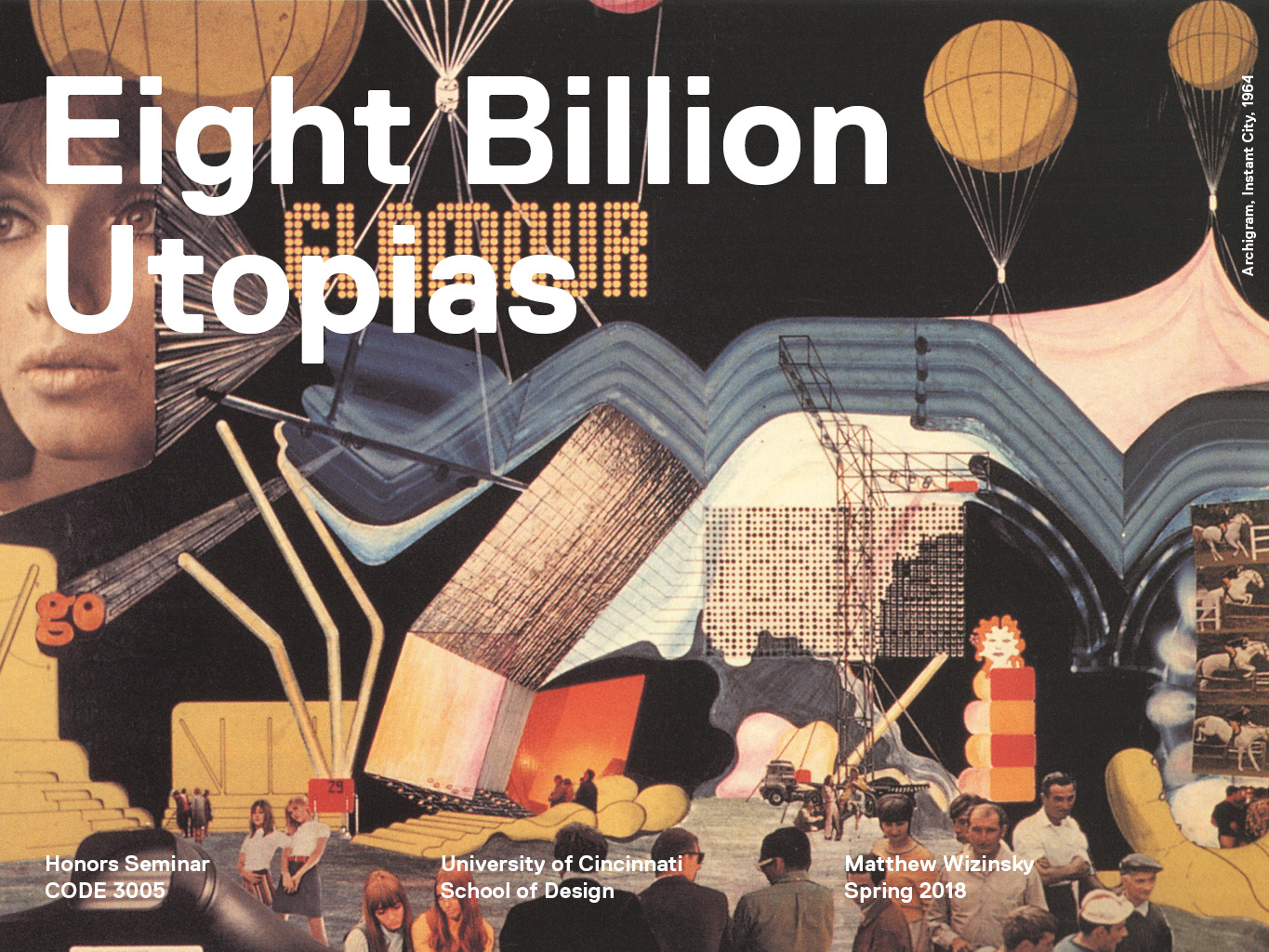
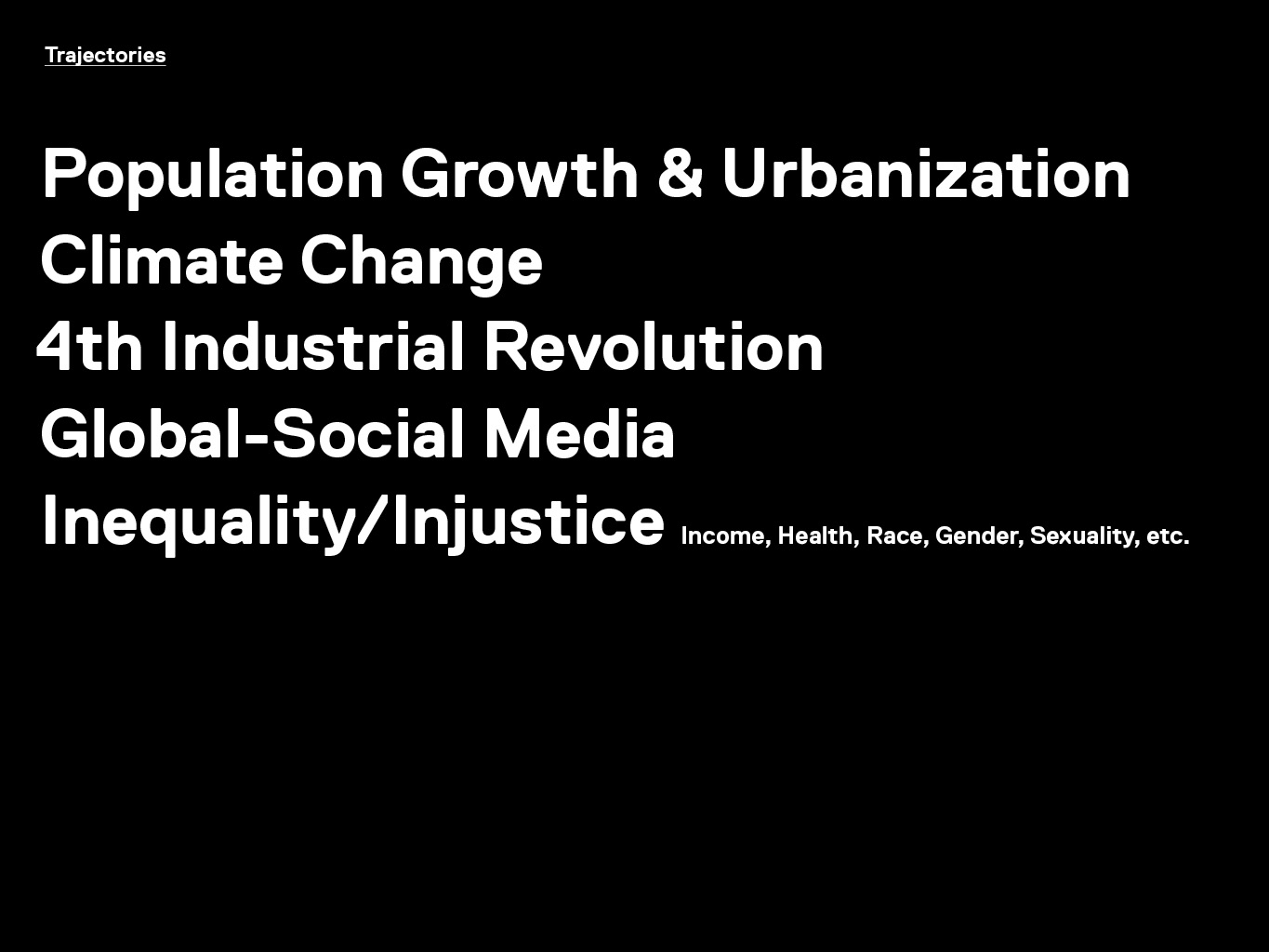
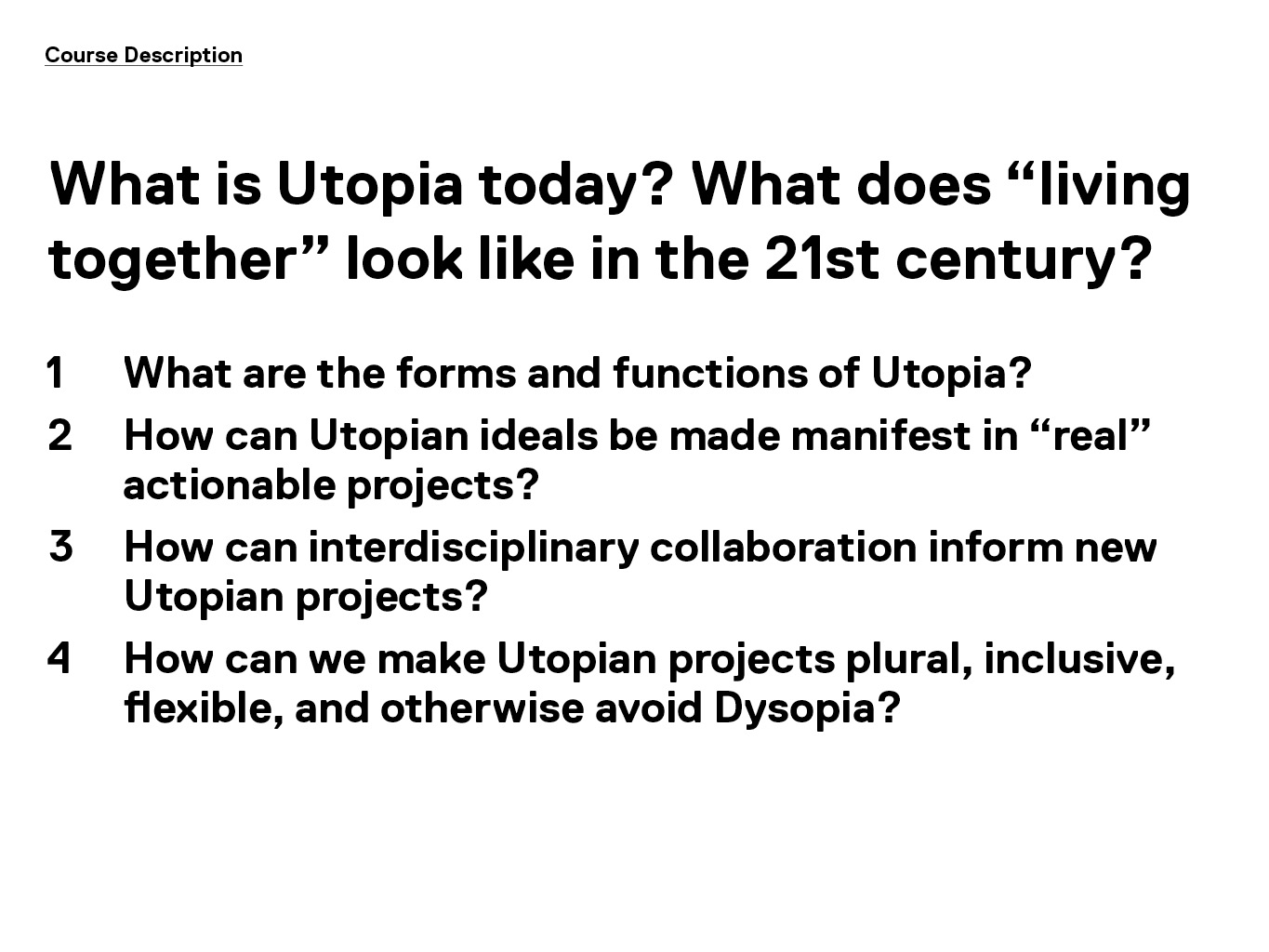
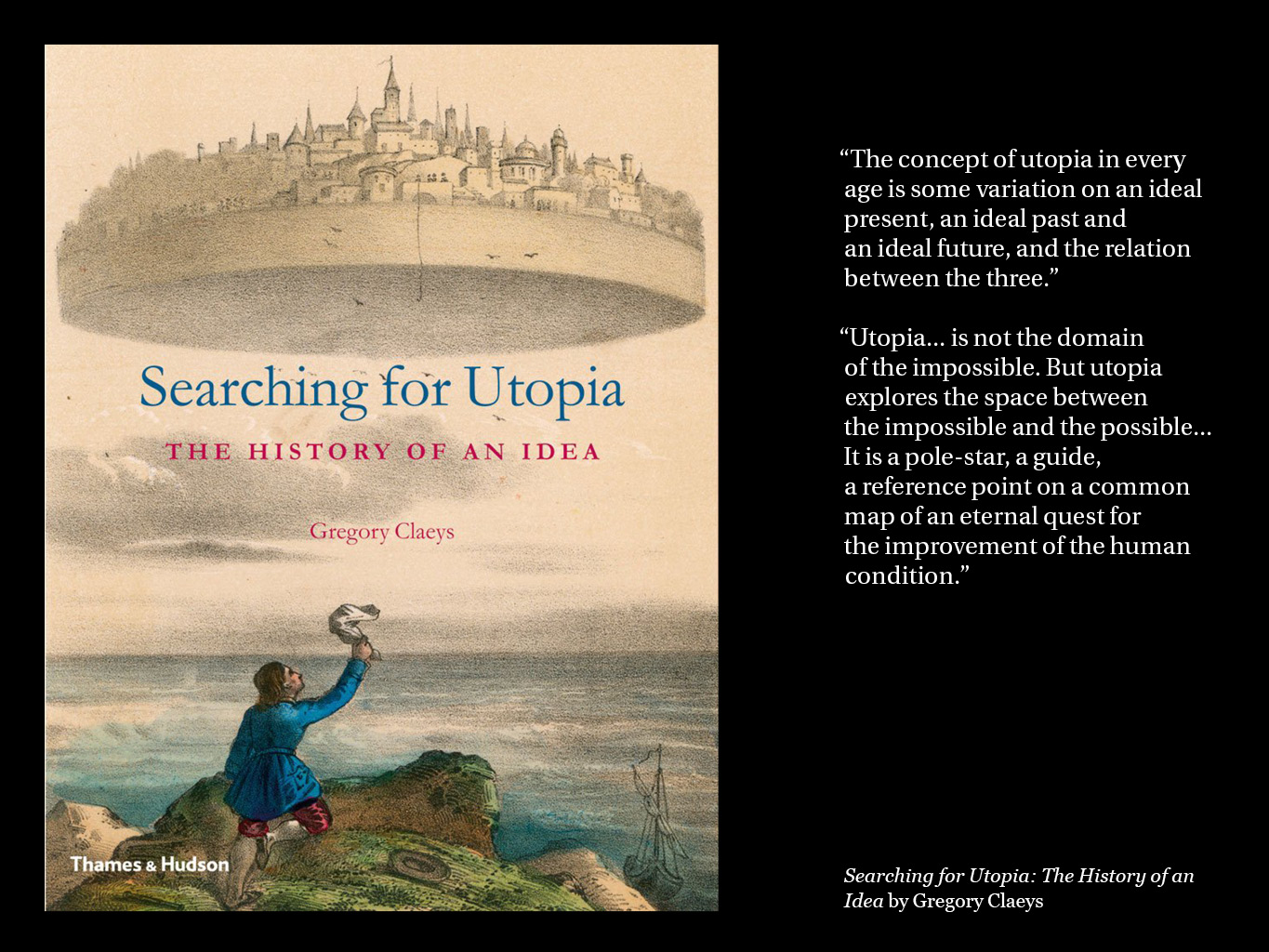
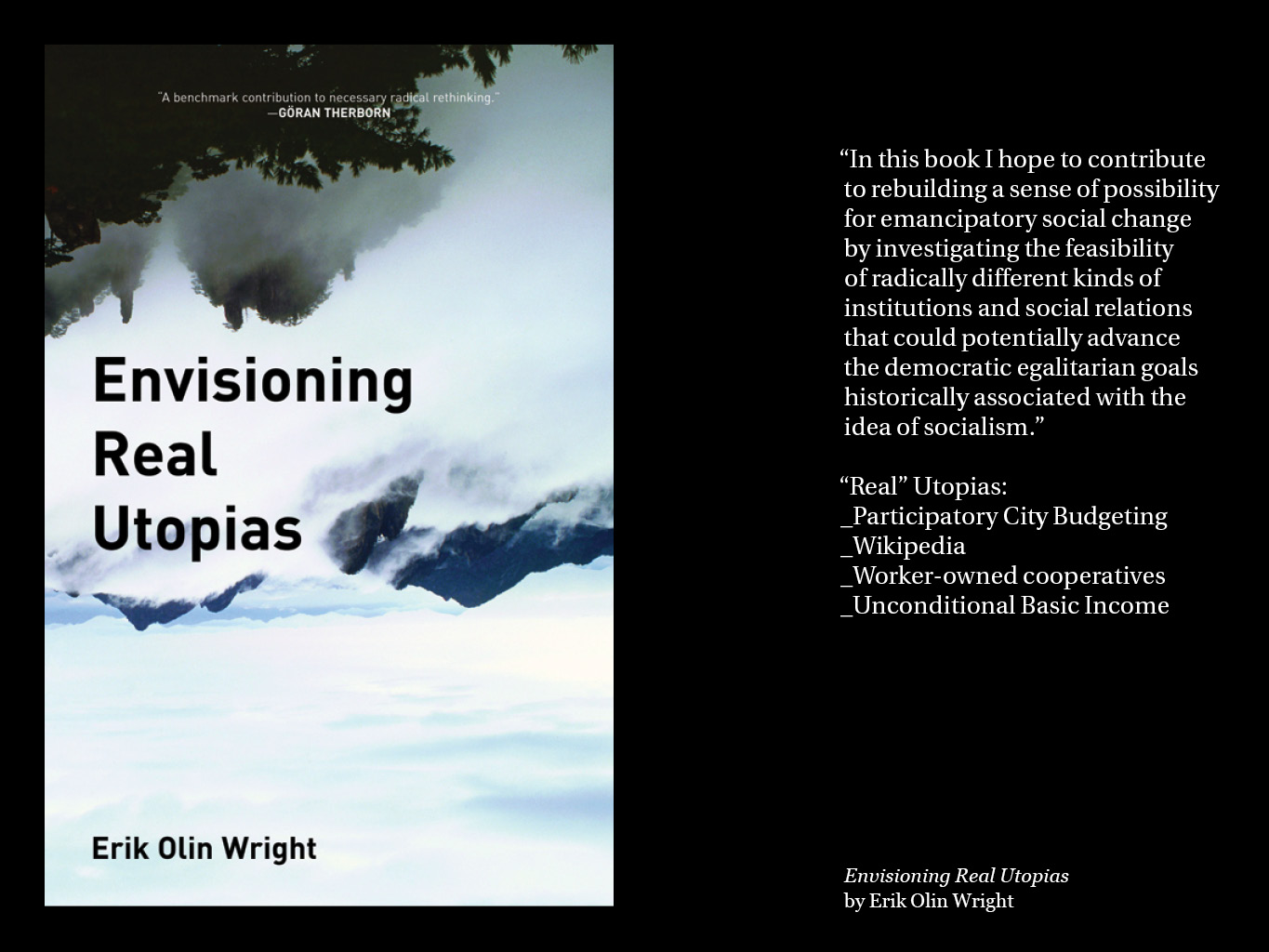
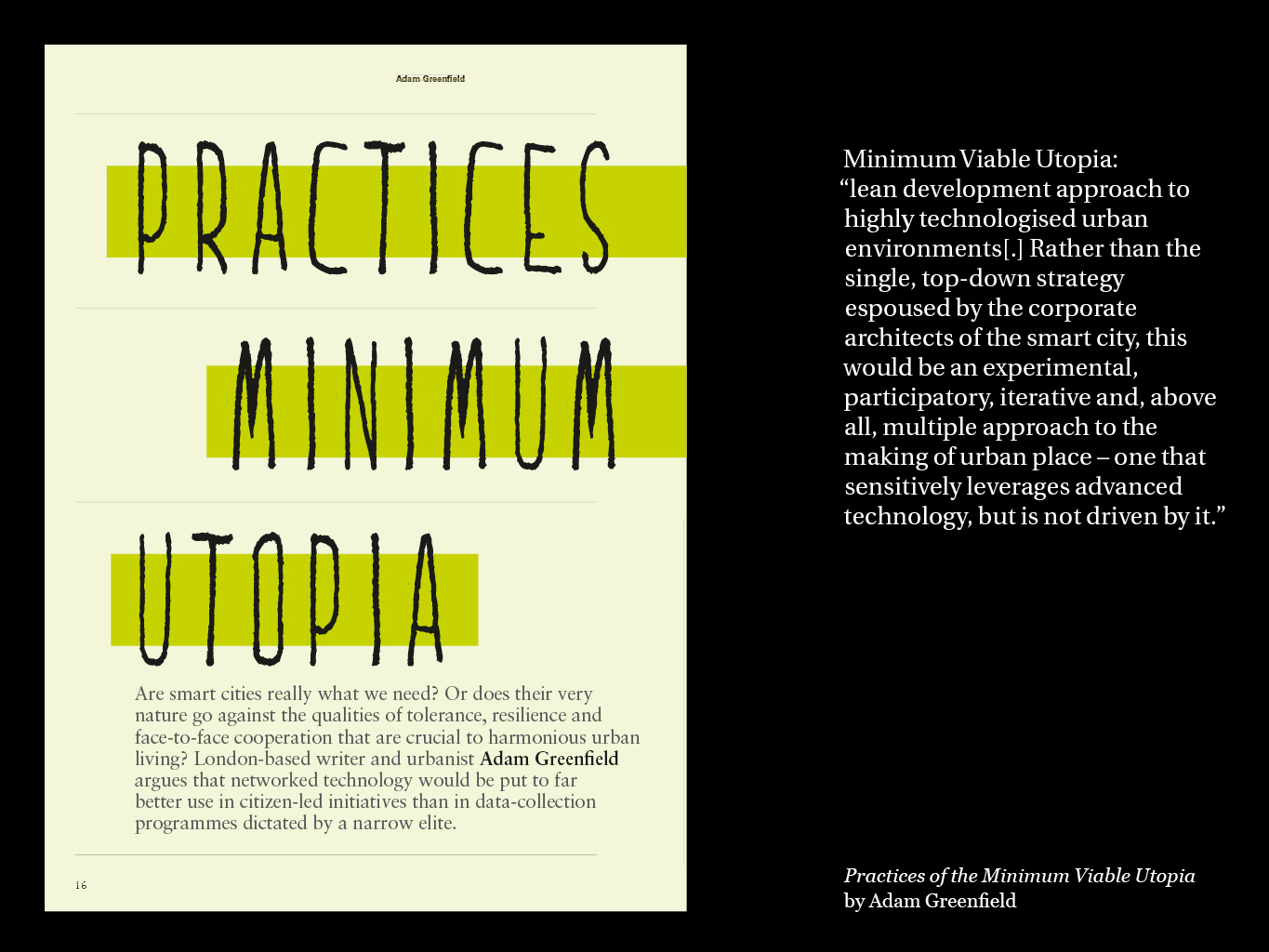
CURRICULUM DEVELOPMENT / 2018–present
Honors Seminar for undergraduate Honors students from all disciplines at University of Cincinnati
At the University of Cincinnati, Honors seminars are open to top-performing undergraduate students from across all disciplines. Faculty propose and produce Honors seminars through a competitive peer review process. In 2018, I began an Honors Seminar course titled “Eight Billion Utopias” to invite cross-disciplinary groups of students into an investigation into the forms, purposes, and opportunities of Utopian projects. The primary questions addressed wre:
Students researched historical case studies, contemporary projects of “real utopias,” and investigated various techniques for making and critiquing proposals about the future. Students worked in small interdisciplinary teams to create Utopian visions for new forms of Society, informed by their collective disciplinary expertise. From there, they were tasked with creating an “experiental essay”—participatory action research generating activities and outputs that would allow a contemporary audience to understand the Utopian project, assess its values, respond to its goals, and—possibly—join the cause.
Experiential essays included:
Based on their experiences and outcomes from the Experiential Essay, studnets were finally tasked with making a future proposal for a Real Utopia.
![]()
![]()
![]()
![]()
![]()
![]()
![]()
![]()
Anissa Pulcheon & David Tong studied small-scale, domestic models for plastic recycling and repuposing. Based on their own experiences, they created DIY instructions and workshops. Their proposal suggested a floating island in the Ohio River as a mechanism to capture, process, research, teach, and put on display the work of plastic recapturing.
![]()
![]()
![]()
![]()
![]()
![]()
![]()
![]()
Clara Dorfi & David Waite organized skill sharing workshops on campus where diverse groups of students freely engaged in teaching skills to their peers. The workshops also functioned to gather interest, methods, and obstacles to ongoing models of community-based knowledge sharing. Based on these outcomes, they proposed a platform and spatial model for sustained community-knowledge workshops.
At the end of the term, students were asked to submit reflection statements, articulating what they felt they gained from the experience. Freshman mechanical engineering student, Ben Winkelmann, shared this:
-
What have been historical forms and functions of Utopia?
- How can Utopian ideals be made manifest in “real” actionable projects?
- How can interdisciplinary collaboration inform new Utopian projects?
- How can we make Utopian projects plural, inclusive, flexible?
-
What is Utopia today? What does “living together” look like in the 21st century?
Students researched historical case studies, contemporary projects of “real utopias,” and investigated various techniques for making and critiquing proposals about the future. Students worked in small interdisciplinary teams to create Utopian visions for new forms of Society, informed by their collective disciplinary expertise. From there, they were tasked with creating an “experiental essay”—participatory action research generating activities and outputs that would allow a contemporary audience to understand the Utopian project, assess its values, respond to its goals, and—possibly—join the cause.
Experiential essays included:
- Students mapping the political implications of their everyday spending, by tracking their own spending and monitoring the political spending on candidates and causes by the businesses they supported
-
Students creating mini “free schools” by creating skill sharing workshops; participating students offered workshops on basics of 3D modeling and useful, everyday applications of scripting software in exchange for lessons in other skills like cooking, and creating personal budgets
- Students experimenting with, studying, and eventually creating instructions for a DIY process of reclaiming plastic waste by transforming it into new multipurpose forms
Based on their experiences and outcomes from the Experiential Essay, studnets were finally tasked with making a future proposal for a Real Utopia.

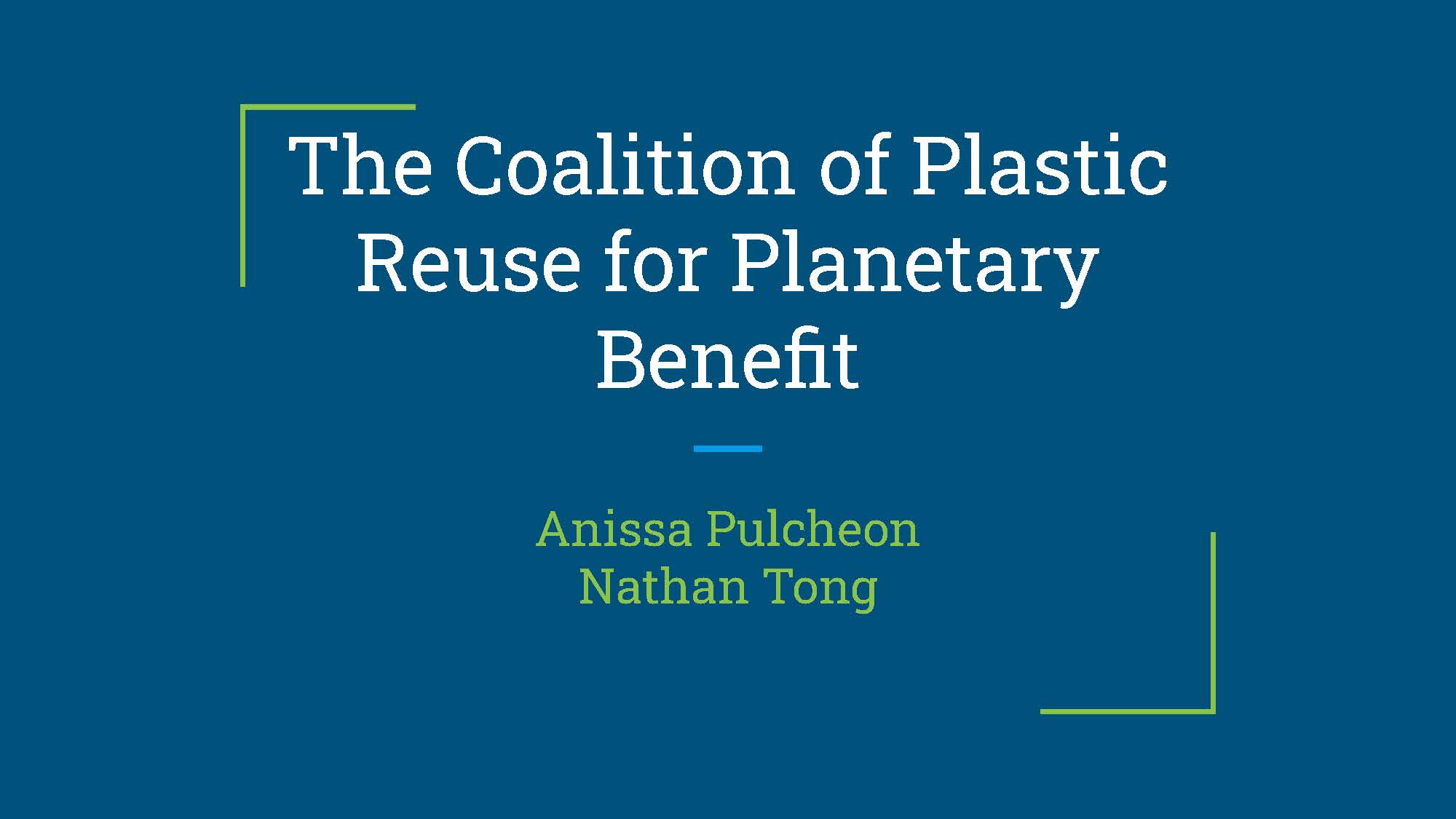
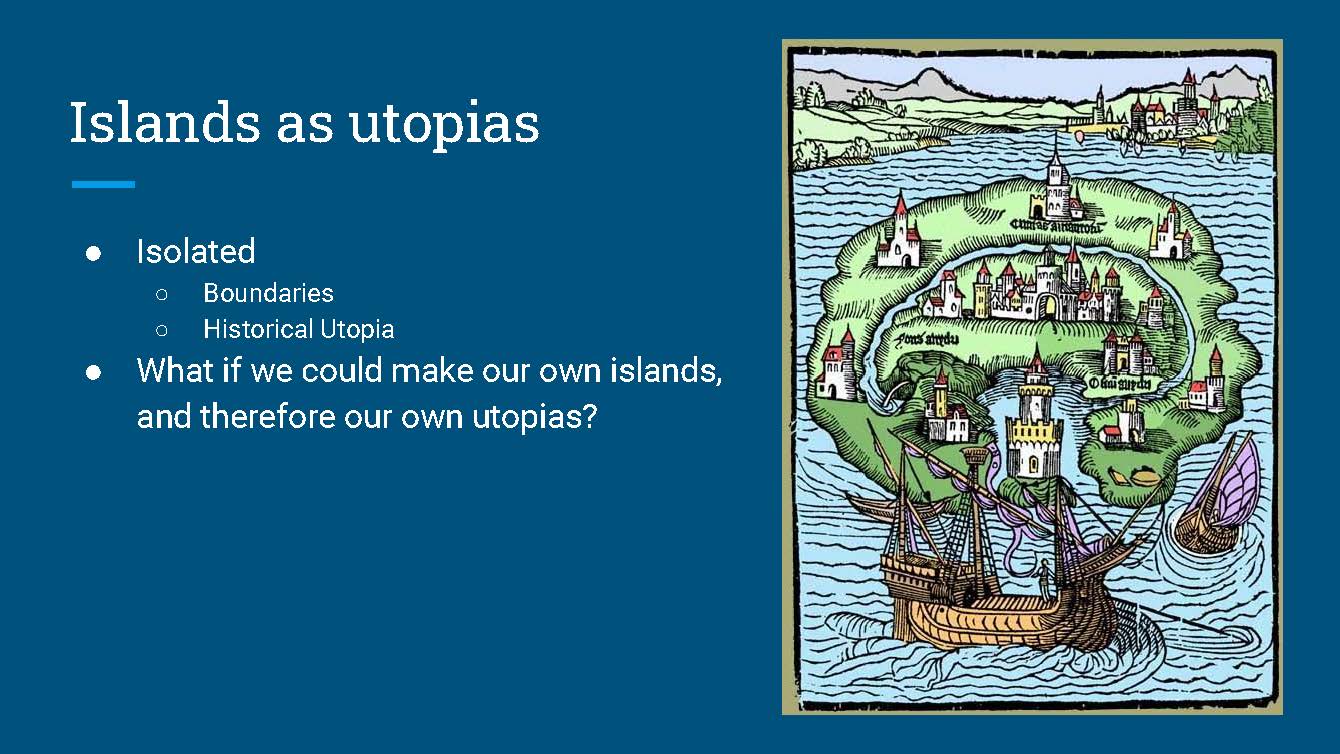
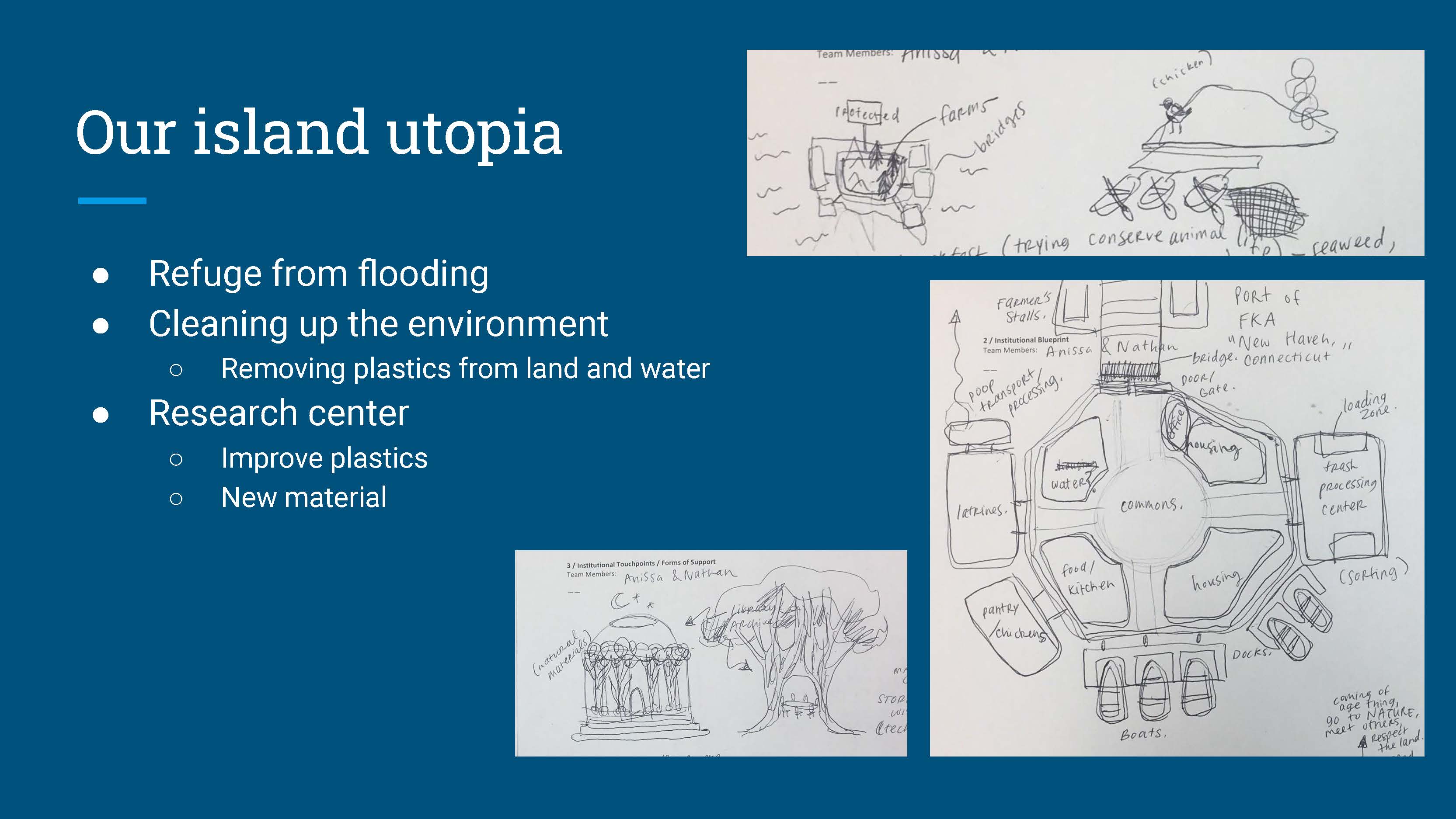
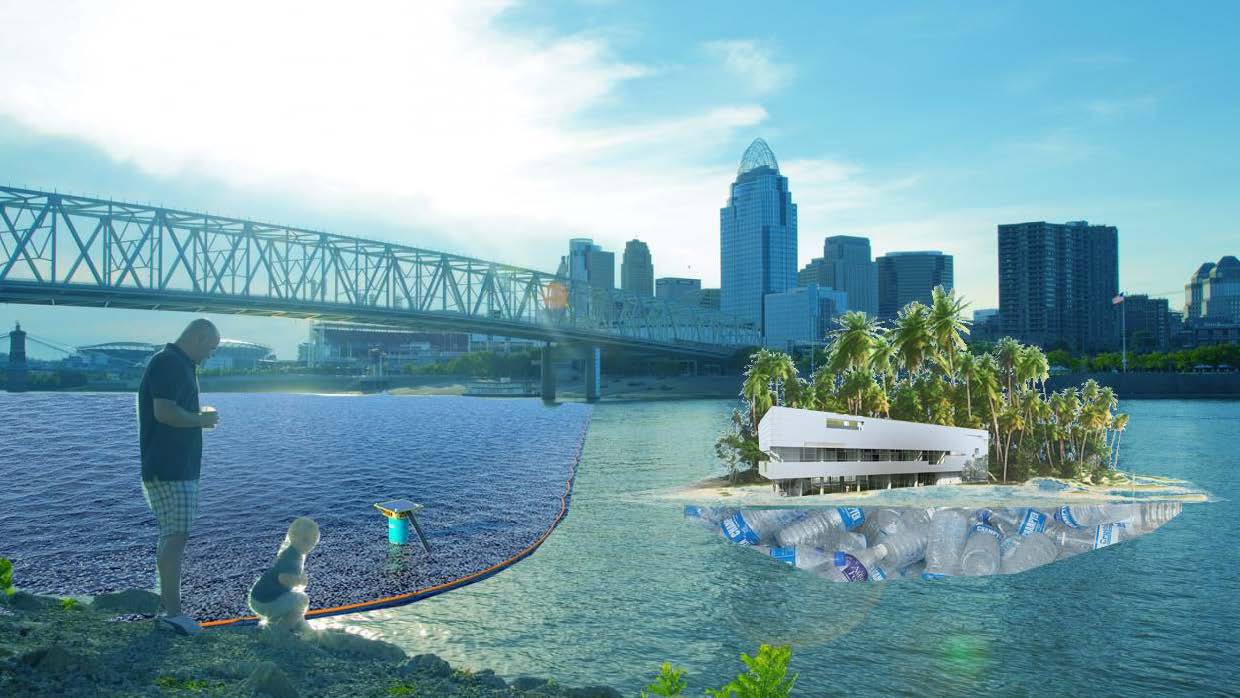
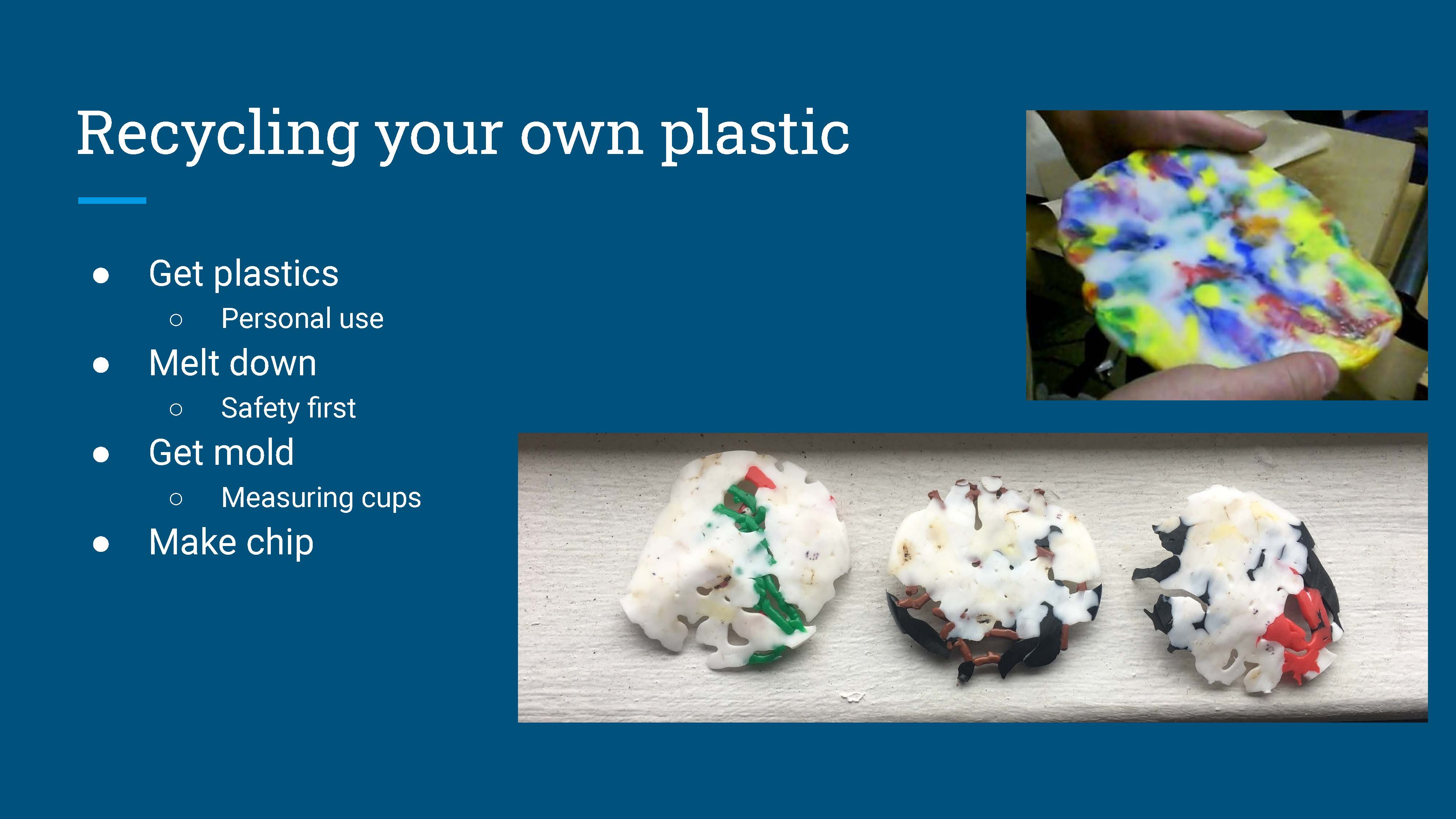
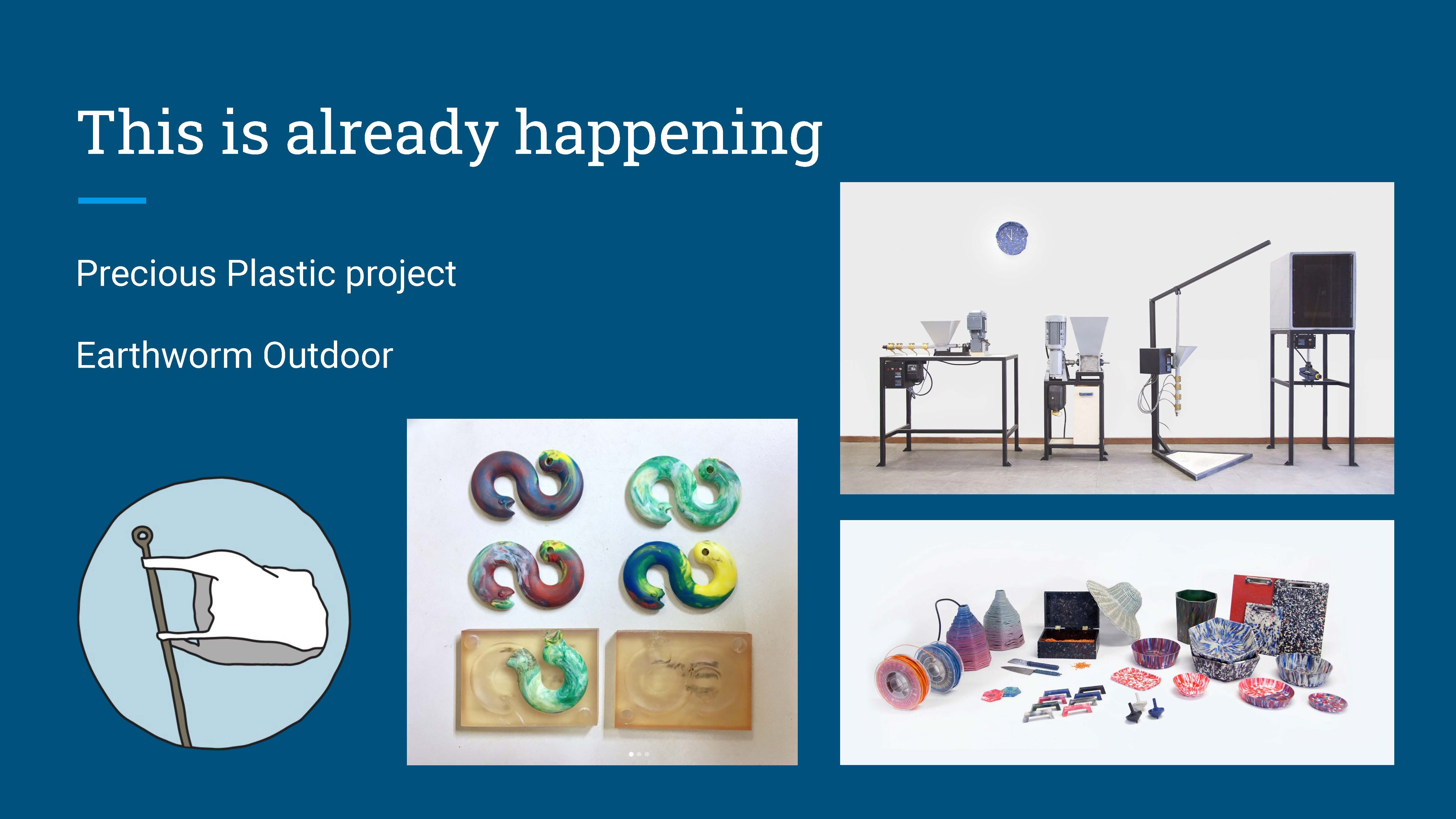
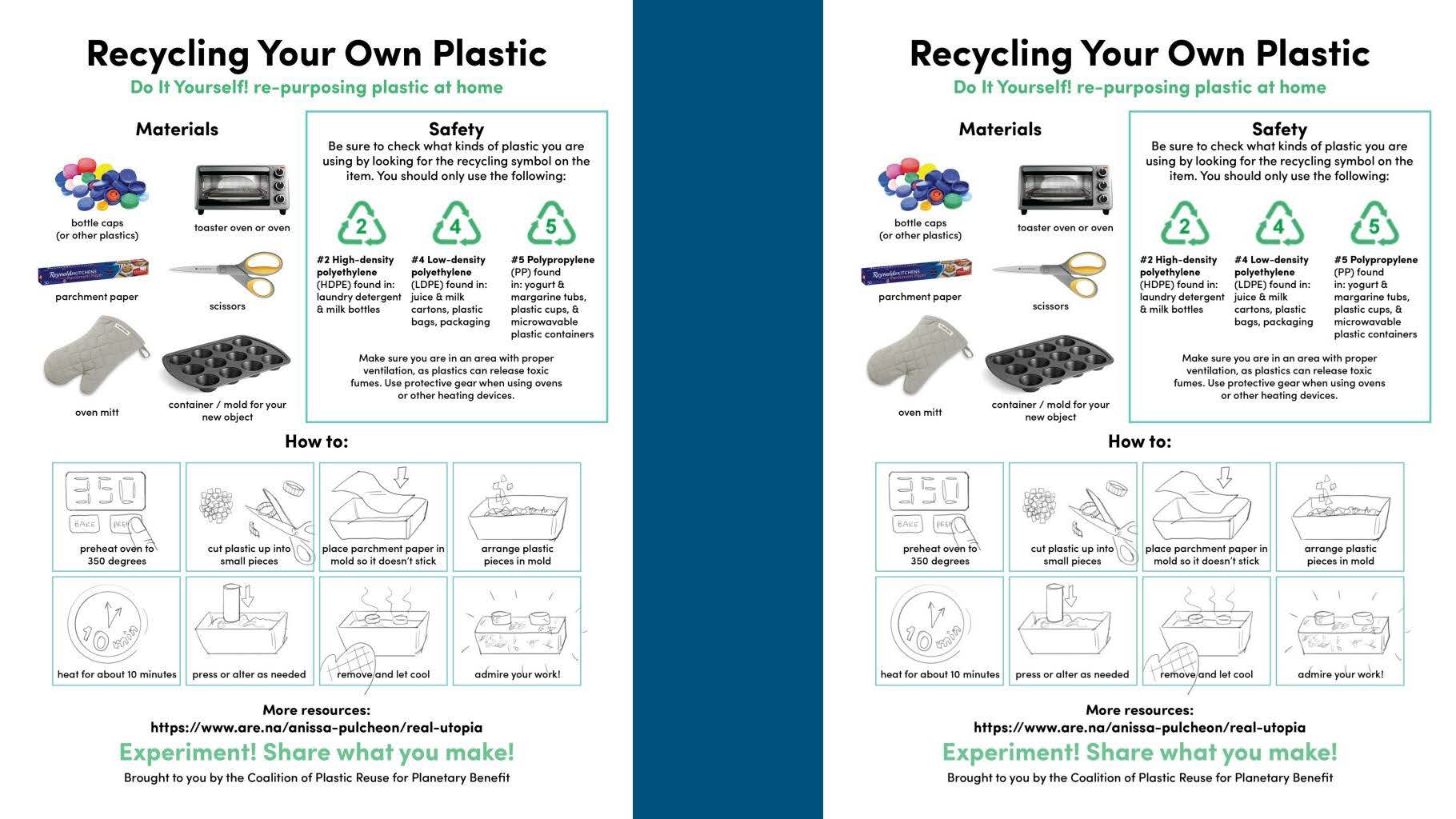
Anissa Pulcheon & David Tong studied small-scale, domestic models for plastic recycling and repuposing. Based on their own experiences, they created DIY instructions and workshops. Their proposal suggested a floating island in the Ohio River as a mechanism to capture, process, research, teach, and put on display the work of plastic recapturing.
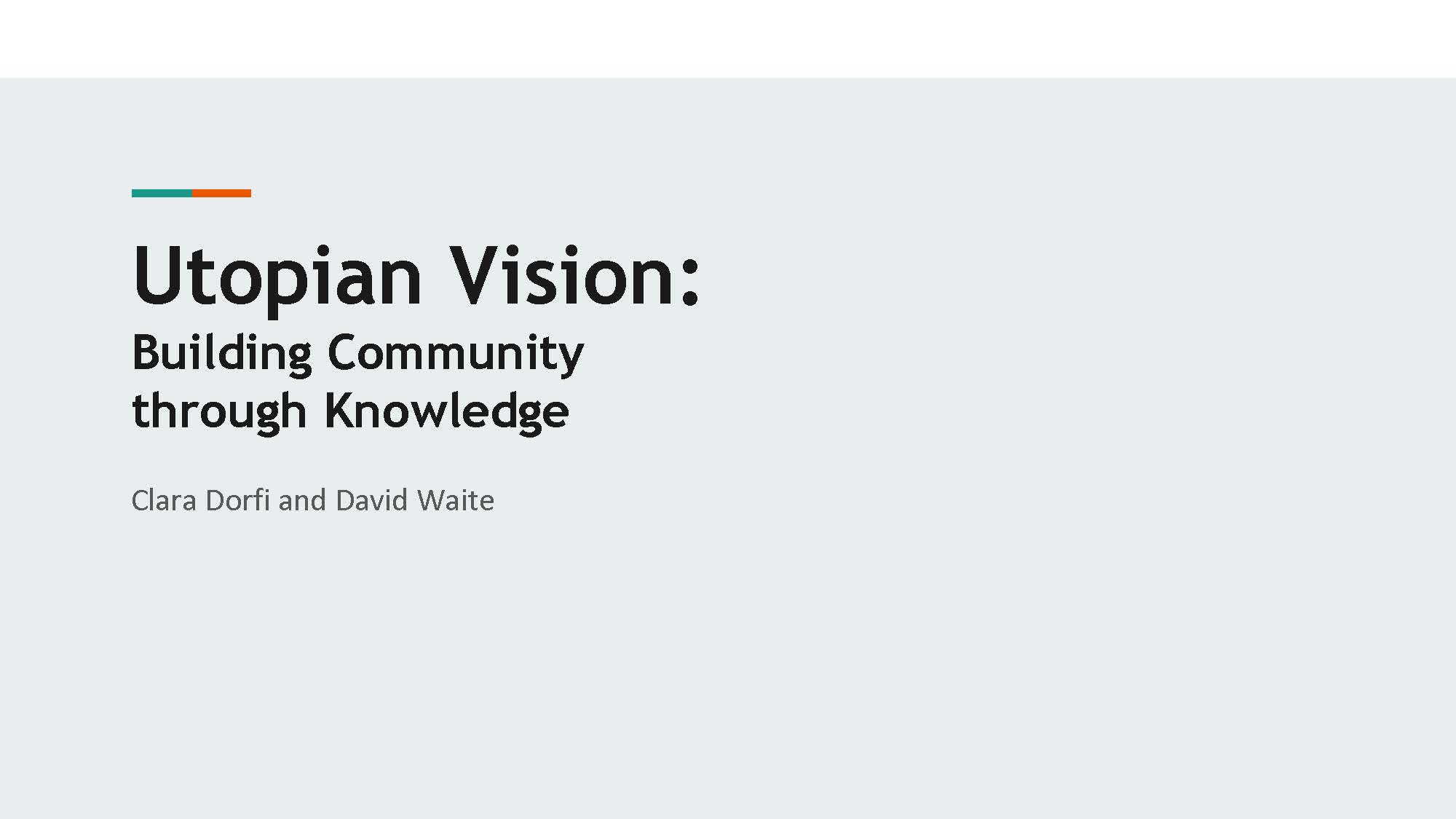
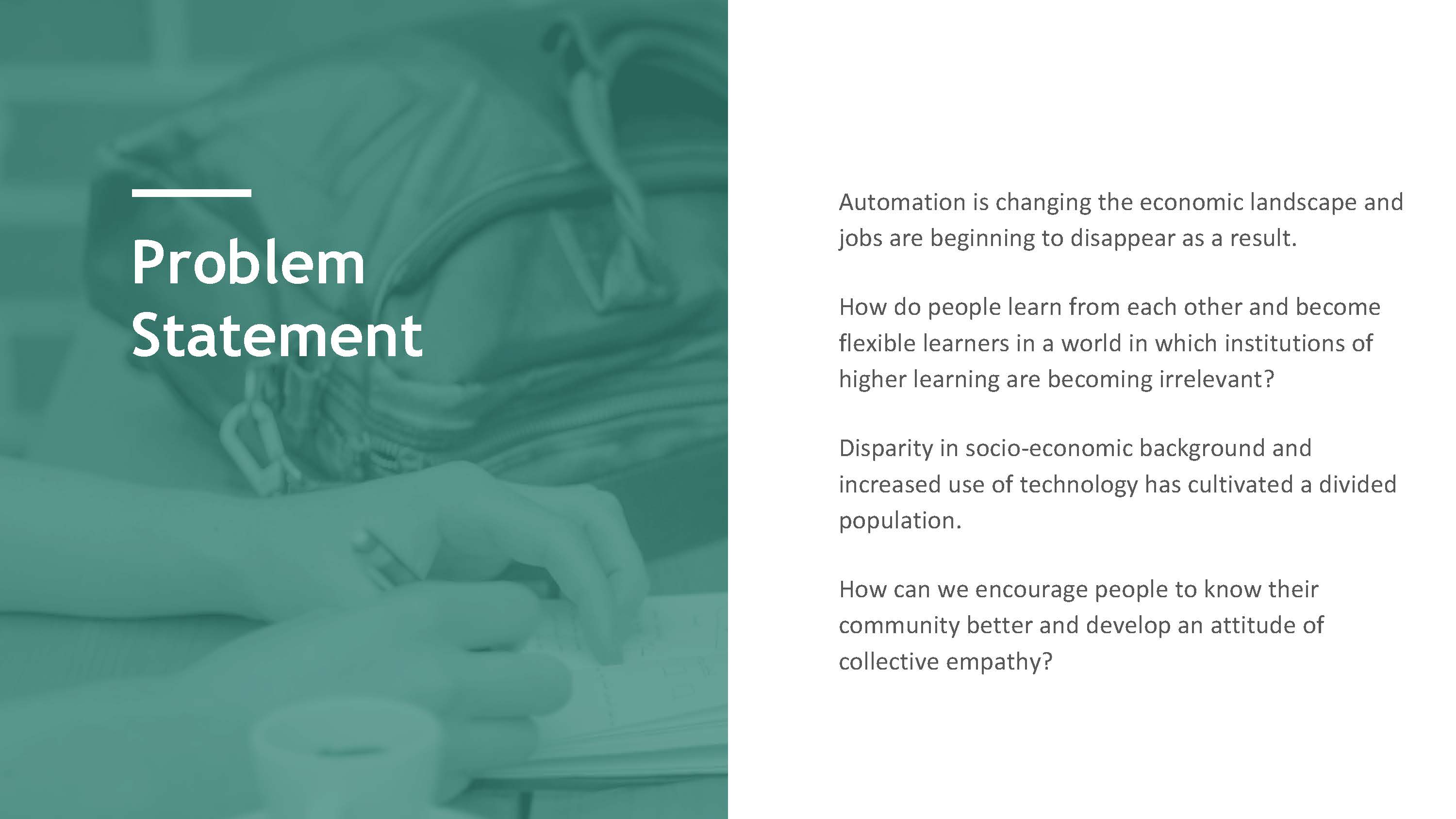
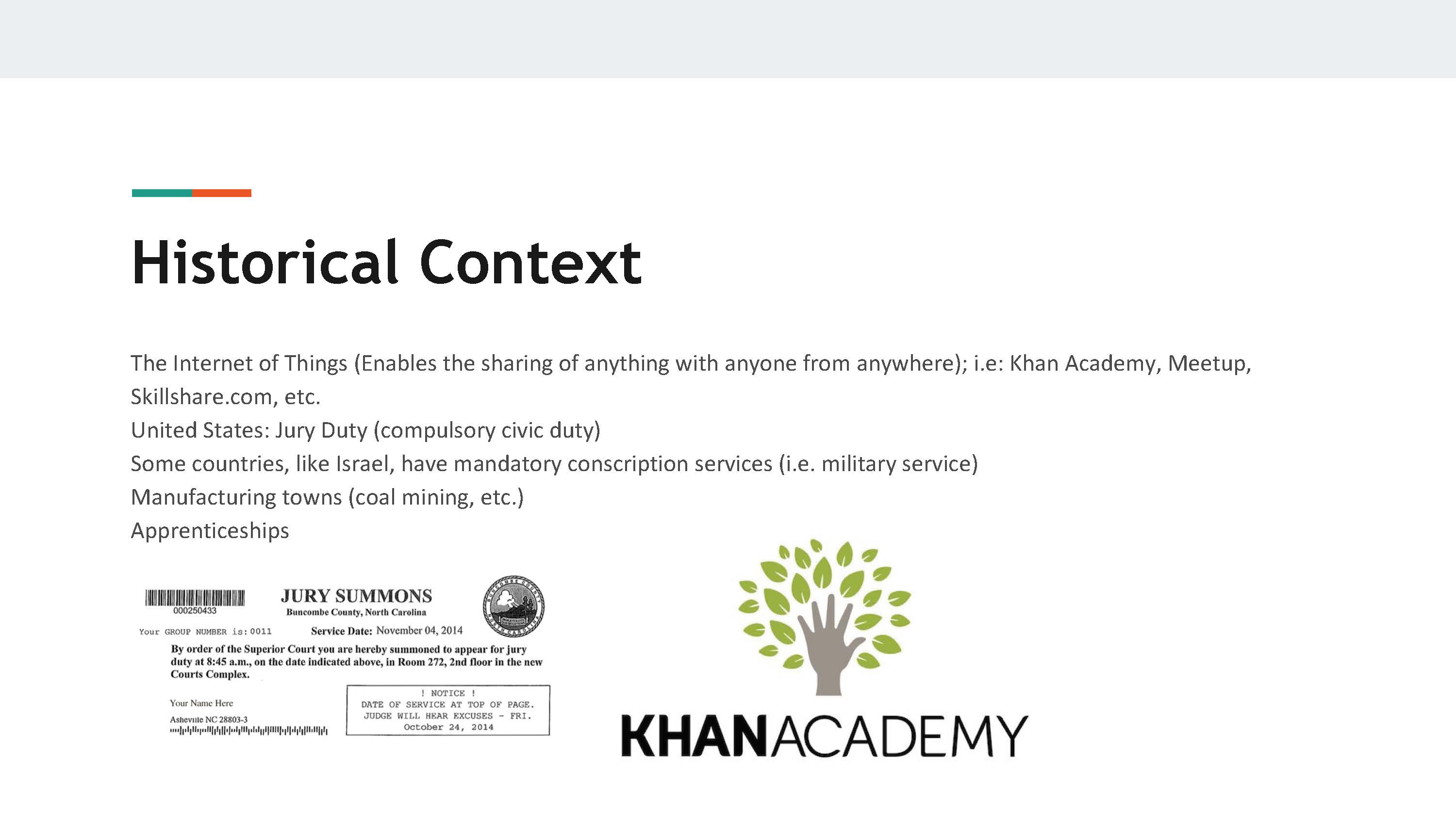
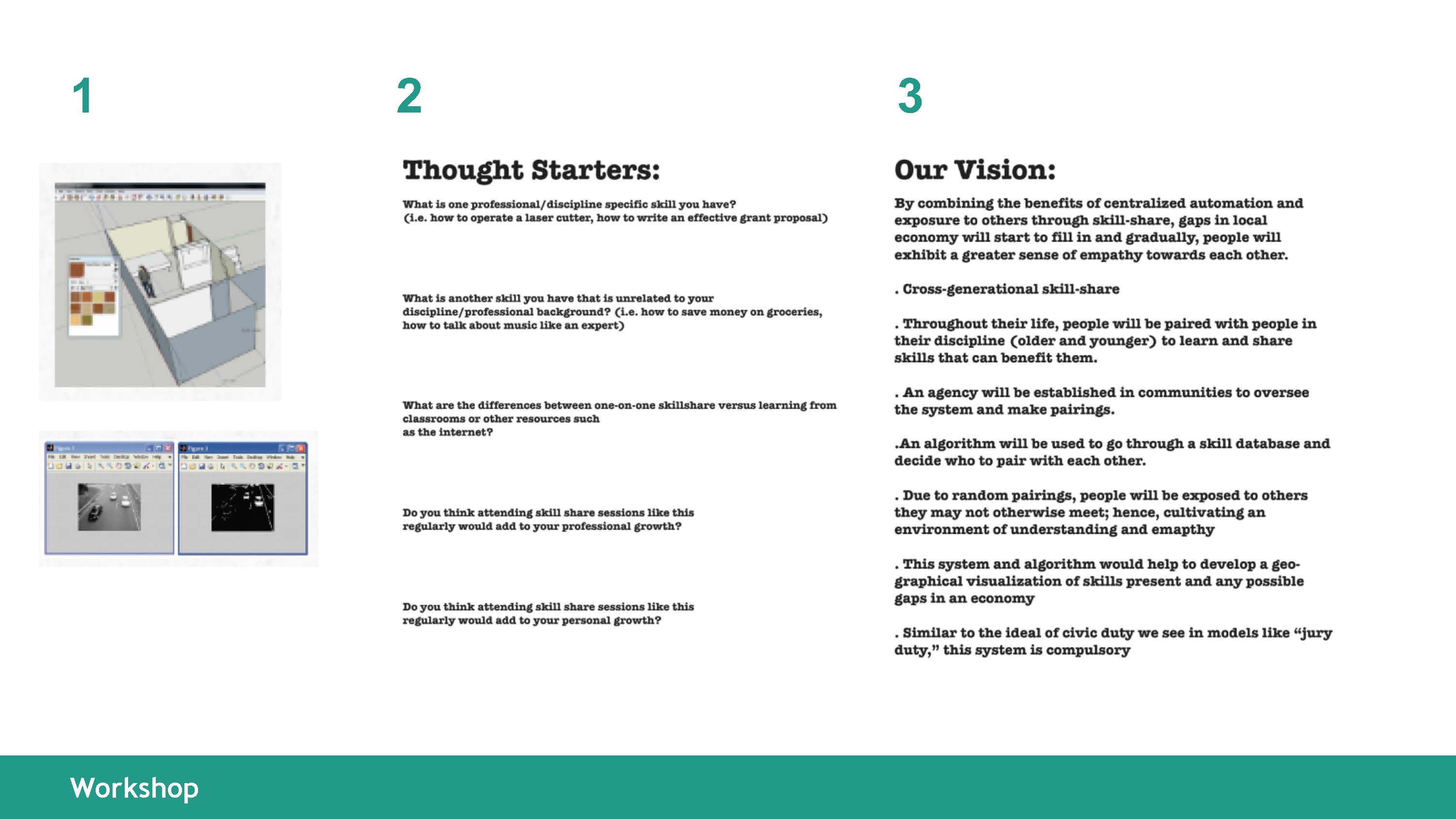
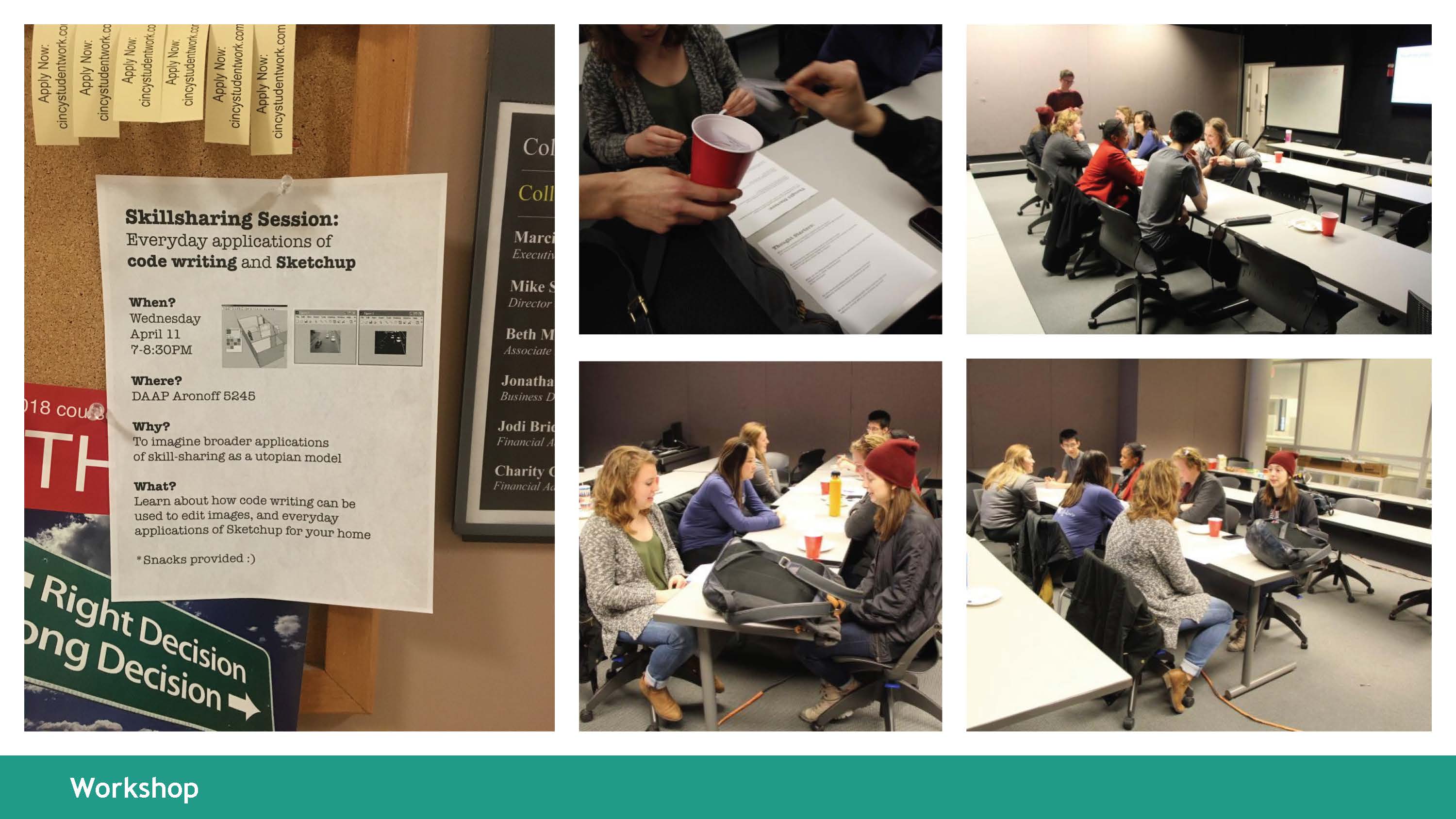
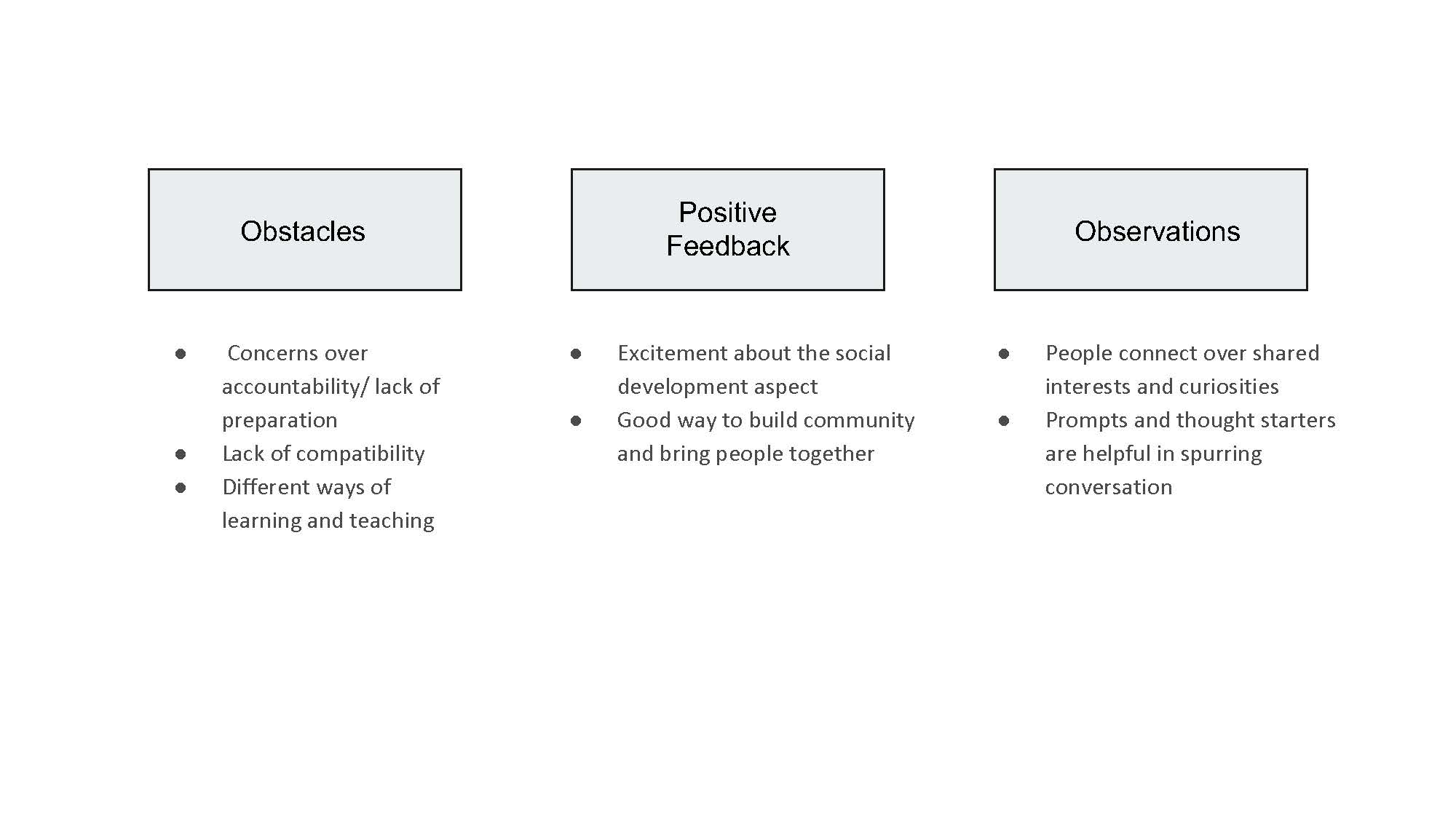
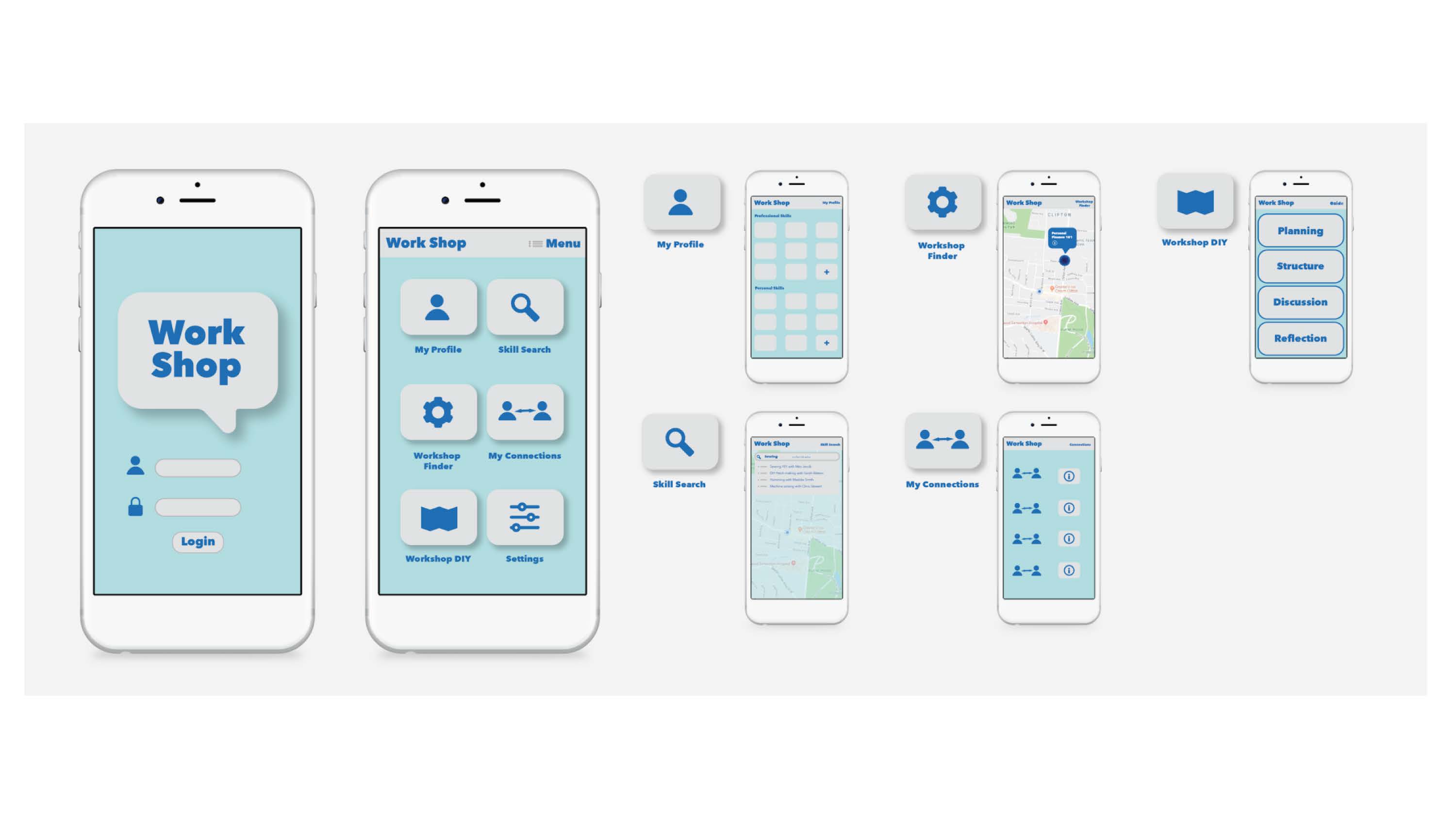
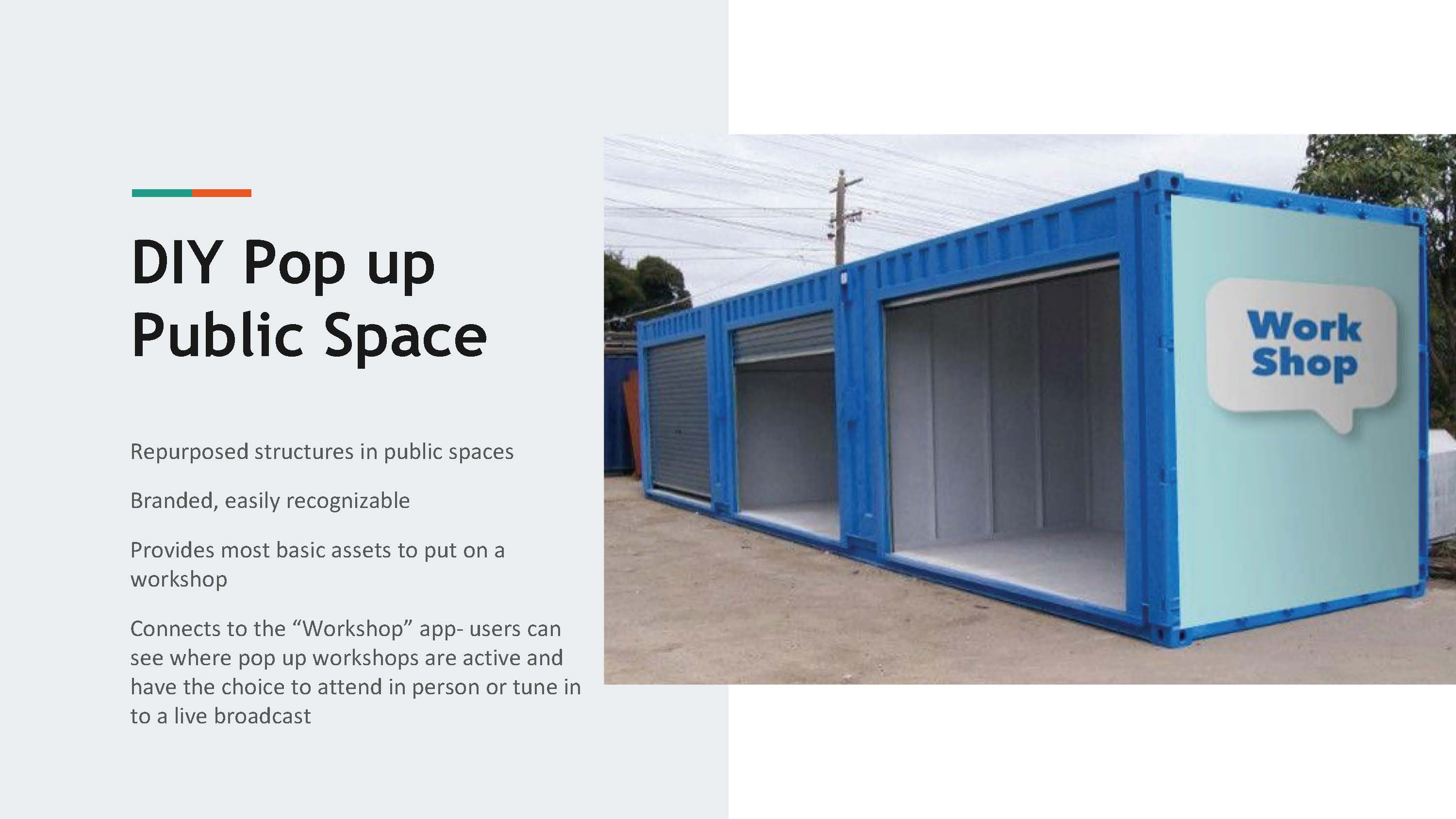
Clara Dorfi & David Waite organized skill sharing workshops on campus where diverse groups of students freely engaged in teaching skills to their peers. The workshops also functioned to gather interest, methods, and obstacles to ongoing models of community-based knowledge sharing. Based on these outcomes, they proposed a platform and spatial model for sustained community-knowledge workshops.
At the end of the term, students were asked to submit reflection statements, articulating what they felt they gained from the experience. Freshman mechanical engineering student, Ben Winkelmann, shared this:
“When I first decided to enroll in this seminar, it was because I needed the experiential credit and the class fit my schedule. I had no idea what to expect from the class as I had never taken an honors seminar before. I didn’t think that the class would be all that interesting, and that it would simply be a source of busy work throughout the semester. As soon as class began on the first day, I knew that I had been wrong. The study of utopia was more than just the definition of the ideals; it involved comparing the visions and projects that have existed before. We talked about how some of these utopias had bordered on dystopia. We discussed how a utopia for one person might be a dystopia for another. The topics covered always provoked thoughtful discussion and had left me wanting for more.
“But while I had no issue fitting into the class, the difficult part was fitting the ideas of the class into the rest of my studies. I am a mechanical engineering student, and I had to regularly answer how the topics that we were studying related to my studies. I was forced to redefine my studies because of this question. I used to say that I study things that move, but now I would say that I study systems. These systems could by the automobiles that many people think of when they picture the work of an engineer, or they could be systems like of the utopian societies imagined by so many throughout the years. I will remember this lesson as I move forward; I believe it to have broadened my understanding.
“I also had to work in an interdisciplinary team as part of the course. I would never have thought this to be quite as impactful as it actually was. As I move further into my studies, the people around me are more and more exclusively studying the same things that I am. To have to work alongside people in different majors and colleges reminded me just how specialized we are becoming here. I have often heard jokes that certain majors approach a problem in specific ways, but nothing made it quite so clear as the discussion that the class held regarding the course material. Everyone in the room brought a remarkably different view on what we had been assigned to read. I am grateful for this, as a conversation in one of my major-specific courses would have not allowed for the same level of insight and dissection of the source material. Working with people outside of the standard disciplines that I encounter in my day-to-day forced me to reconsider how I thought of even seemingly simply situations.
“... For the final part of the course, I tracked my spending and looked into how the money I spent in my day-to-day life contributed to politics. While it did open my eyes to my own actions, it reminded me that small actions can have large consequences. With that in mind, I would say that the class was worth it because it has forced me to open my eyes to the world around me, and see.”